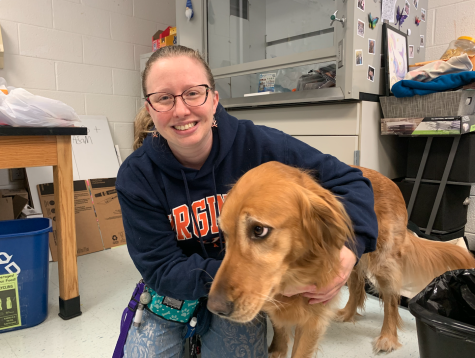The JUUL problem persists
E-cigarettes have been on the market since 2003, their popularity sky-rocketing within the last couple of years.
With this explosion of production came problems, minors were buying e-cigarettes such as Juul’s despite the supposed “rules” against teen access to nicotine products.
The consumption of nicotine products by minors became a serious epidemic and government programs such as the FDA have tried to limit teen access to these products.
Recently, a bill changing the legal smoking age from 18 to 21 was signed and passed by Virginia Governor Ralph Northam. This is a big step in the right direction of limiting teen access to nicotine products.
However, attempts have not seemed to make much progress. Additionally, former FDA commissioner Scott Gottlieb resigned from his position due to his anti vape campaign not following through.
It seems as if efforts in the restriction of teen purchase of nicotine products have flopped.
Despite the FDA’s ban on certain flavored nicotine products, teens still have access to these “banned” flavors.
Although the FDA’s and other government organizations efforts are honorable, teens continue to have access to e-cigarettes.
In addition to the massive amounts of e-cigarettes that are already circulating in the possession of minors, some stores continue to sell to minors.
It is just simply still too easy to purchase e-cigarettes. The widespread access can partly be because of lackadaisical attitude towards nicotine products.
Many teens seem to consider advertisements and PSA’s against nicotine products as jokes or delusional.
“I see tons of ads on TV, YouTube, Instagram, just about everywhere honestly,” junior Michael Brown said. “I don’t really take them seriously because I know the risks of nicotine products are being blown out of proportion by the ads.”
Unfortunately, some campaigns against nicotine products make arguments that don’t relate to the teen or contain information that is a stretch from the truth.
A common cautionary phrase is “E-cigarettes can contain other harmful substances besides nicotine.” This statement is a stretch from the truth because, in fact, most e-cigarette products contain only Propylene Glycol (PG) and/or Vegetable Glycerin (VG), Non-Oil Food Grade Flavorings and Nicotine. Unlike ad campaigns say, none of these ingredients are toxic.
It is critical that opposers to e-cigarettes are aware that the danger of e-cigarette products is the addictivity, not the toxicity.
For change to be made, there needs to be a new approach to talk about the harms of e-cigarettes.
Additionally, irresponsible store vendors are part of the blame for widespread use of nicotine products by minors.
Many smoke shops and gas stations around the nation continue to sell nicotine products to anyone, no matter the age.
However, the FDA reported actions against e-cigarette vendors that were accused of dealing to minors.
More than 1,300 warning letters and fines to retailers announced were part of a large-scale, undercover nationwide blitz to crack down on the sale of e-cigarettes to minors at both brick-and-mortar and online retailers, which was conducted from June through the end of August.
Despite the FDA’s actions, there are still many vendors that sell to minors. In fact, smoke shops and gas stations around the Northern Virginia area carry reputations for being easy spots for purchasing e-cigarettes or e-cigarette products.
The unfortunate truth is clear, there is little that can be done to stop the consumption of nicotine products by minors.
It is possible that the flow of e-cigarettes to minors can be slowed by limits in attractive flavors that are sold or stores that have a reputation for dealing to minors.
If teens know the consequences of their actions, change could soon follow.

Manny Precht is a senior and the current Co-Editor in Chief of The A-Blast. It is his second year on staff where he was previously the Health Editor. In...













